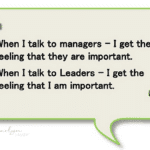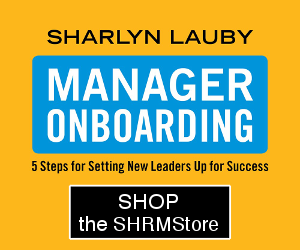Before we go any further, stop being modest and saying, “Who me?! I don’t have any power.” Yes, you do. In fact, it’s important for us to realize that power exists in all of us. Everyone has power. Everyone.
Dictionary.com defines power as “a person or thing that possesses or exercises authority or influence”. So in essence when we use power; we’re utilizing our authority to get something.
Power isn’t a bad thing. It’s really a matter of how much we have and when we use our power. Three of the biggest mistakes I see with use of power revolve around someone (1) trying to use power they don’t have enough of, (2) using the wrong kind of power to achieve results and (3) not using power when they should.
There are seven types of power in the workplace. I’m sure you’ve seen many of these.
- Coercive power is associated with people who are in a position to punish others. People fear the consequences of not doing what has been asked of them. It doesn’t always have to be a fear of disciplinary action. It could be a less favorable work schedule or a boring work assignment.
- Connection power is based upon who you know. This person knows, and has the ear of, other powerful people within the organization. Connection power comes in handy when a person needs to ask for a favor or needs help with a project.
- Expert power comes from a person’s expertise. This is commonly a person with an acclaimed skill or accomplishment. Expert power isn’t always about letters after someone’s name. They could be a subject matter expert or the guru who always seem to know how to fix the copier.
- A person who has access to valuable or important information possesses informational power. Being able to curate data in this world of technological noise, can make a person very powerful.
- Legitimate power comes from the position a person holds. This is related to a person’s title and job responsibilities. You might also hear this referred to as positional power.
- People who are well-liked and respected can have referent power. Being popular is very powerful. That’s why people want to be a part of “the cool kids”.
- Reward power is based upon a person’s ability to bestow rewards. Those rewards might come in the form of job assignments, schedules, pay or benefits.
As you can see, there are lots of different ways power can manifest itself. And for that reason, it’s important to realize that power exists in all of us. It’s also possible that you have different kinds of power with different groups or situations.
To help you identify your workplace power, take a moment to think about how you try to influence others. You could use the descriptions above as a pseudo self-assessment. Rate yourself on a scale of 1-5 in each of the different kinds of power (1 = not at all like you to 5 = quite lot like you).
This can be a (sorry for the pun) powerful exercise. I hope you’ll find the results helpful. Not only for the way you tend to use power but in the way others use power with you.
0








Viswas says
We have learnt this in MBA! However, we can use the power only what we have ? Being a fresher with less than a year of experience, I may have only connection power, if we have a great reln. with the CEO ?
Anyway, over time we would tend to get more power as we move up the ladder.. ?
🙂
Terry Portillo says
Great post! I am a Language and Culture Instructor for Lone Star Corporate College and am going to use this as a reading with my students. It should generate some interesting discussions. My students are professionals from China seeking to improve not only their English speaking and writing skills but also their understanding of American business culture. Your post contains lots of great vocabulary and will give them some useful insights.
Terry Portillo
http://generationhr.wordpress.com/
Sharlyn Lauby says
Thanks for the comments! Glad you enjoyed the post.
saba says
Iam a govt teacher …learnt abt power ..I think we all need to exercise our powers …thanks form d valuable information
Stephen Rae says
Great post! Whether we know it or not, each of us is dominated by our ‘assertive’, ‘assisting’ and ‘avoidant’ selves in any given situation. These psyches determine how we express ourselves with our colleagues, clients and anyone we interact with.
How do you come across in presentations, meetings, in the boardroom or even to your team or colleagues?
As a manager or leader of people, I argue that with power comes great responsibility. You need to be self-aware of your behaviours, emotional responses and the way you manage people.
The more consciously aware you are, the more you can control your power by governing your voice, emotional response and non-verbal signals to create positive impact, not negative.
Katherine Razzi says
Hi Sharlyn!
I’m commenting on this earlier post you wrote which caught my eye. Boy, just when one thinks he or she is powerless on the job, here are 7 reminders that discount that notion. I think I’m about a 5 in Expertise and Information Power. Only a 3 in 6 Referent Power. The rest don’t apply to me. But I feel good about my expertise and informational power. I think it’s the kind of power that if you leave a company will be sorely missed.
It’s good to understand these powers and equate them to value and talent one possesses. This insight really gives me confidence in my job. Makes my day! Thanks!
Sharlyn Lauby says
Thanks so much for the comments!